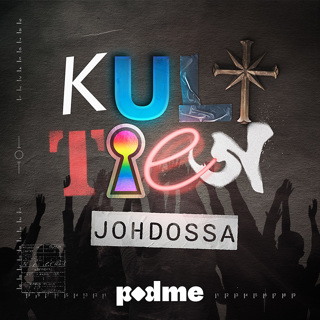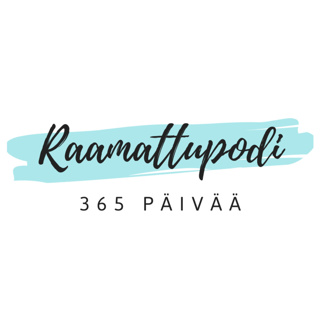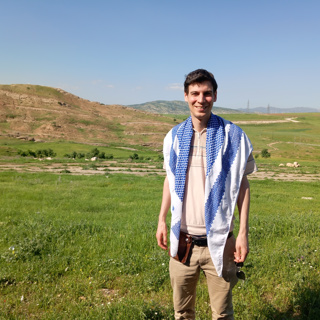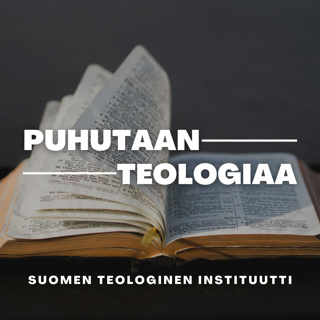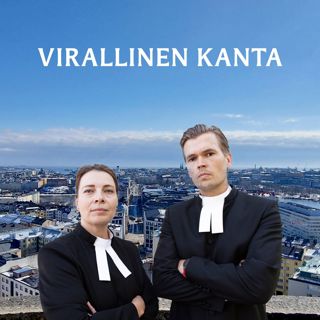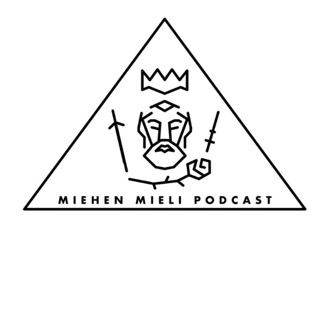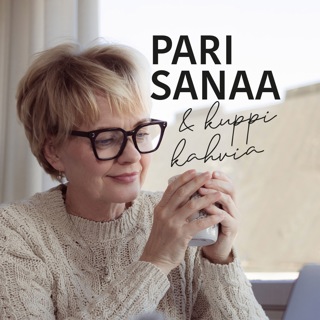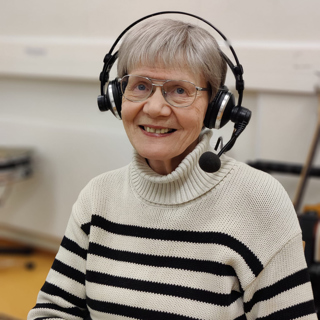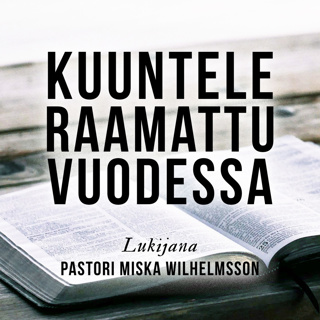![Eli Langer & Zevy Wolman: How We Keep Our Finances Kosher [Wealth 2/4]](https://cdn.podme.com/podcast-images/D79089FBEF78B78B9B1A2A8AFD27F6A1_small.jpg)
Eli Langer & Zevy Wolman: How We Keep Our Finances Kosher [Wealth 2/4]
In this episode of the 18Forty Podcast, we talk to Eli Langer and Zevy Wolman - hosts of the Kosher Money podcast - about financial literacy as it relates to Orthodox Judaism.The cost of living in Orthodox communities is tremendous, and seems to only grow. Between tuition, simchas, and more, families in America’s top one or two percent by income struggle to get by.- How severe is the issue of cost of living in the Orthodox community?- What dynamics factor into this issue?- How should we aim to solve this issue long term?- How can financial literacy help?Tune in to hear a conversation about financial literacy and the cost of living in the Orthodox community.For more, visit https://18forty.org/wealth/.References:Thou Shall Prosper by Rabbi Daniel Lapinhttps://www.amazon.com/Thou-Shall-Prosper-Commandments-Making/dp/0470485884You Revealed by Rabbi Naftali Horowitzhttps://www.amazon.com/You-Revealed-Torah-Path-Success/dp/1422627462The Index Card by Helaine Olenhttps://www.amazon.com/Index-Card-Personal-Finance-Complicated/dp/1591847680Dovid Bashevkin on Kosher Moneyhttps://livingsmarterjewish.org/dovid-bashevkin-has-very-interesting-takes-on-money-kosher-money-episode-15/Watch Kosher Money here:https://www.youtube.com/playlist?list=PLI8a9R9xblEbj3S5R7i35kBL9n8sF6rClListen to Kosher Money here:https://plinkhq.com/i/1572928547?to=pageMore info here:https://www.livinglchaim.com/Eli Langer is the CEO of Harvesting Media, and previously worked as social media producer for CNBC. Eli is the host of the Kosher Money podcast, where Eli meets with visiting experts on the financial realities and challenges of life as an observant Jew. Zevy (Isaac) Wolman is an entrepreneur and CEO of Make it Real, a global toy company. Zevy is a founding member of Living Smarter Jewish, Relief of Baltimore, Bobbie’s Place of Baltimore, and Baltimore Business Loan fund and a board member of the Orthodox Union.Become a supporter of this podcast: https://www.spreaker.com/podcast/18forty-podcast--4344730/support.
28 Joulu 20211h 24min
![Mark Trencher: Orthonomics: The Cost of Frum Life [Wealth 1/4]](https://cdn.podme.com/podcast-images/D79089FBEF78B78B9B1A2A8AFD27F6A1_small.jpg)
Mark Trencher: Orthonomics: The Cost of Frum Life [Wealth 1/4]
In this episode of the 18Forty Podcast, we talk to Mark Trencher - founder of Nishma Research - about finances in the Orthodox community.Mark Trencher founded Nishma Research to survey the Jewish community about various important questions relating to Jewish life. His surveys are of wide-ranging subject matter, including reasons that people go off the derech, political orientation, opinions about vaccines, and of course, finances.- How taxing is Orthodoxy on peoples’ finances?- What financial areas do Orthodox families struggle with most?- Are Orthodox people able to save for retirement?- How does this financial strain affect peoples’ religiosity?Tune in to hear a conversation about Orthodox Judaism and finances.For more, visit https://18forty.org/wealth/.References:Rupture and Reconstruction by Haym Soloveitchikhttps://traditiononline.org/rupture-and-reconstruction-the-transformation-of-contemporary-orthodoxy/Wanting by Luke Burgishttps://www.amazon.com/Wanting-Power-Mimetic-Desire-Everyday/dp/1250262488All Who Go Do Not Return by Shulem Deenhttps://www.amazon.com/All-Who-Go-Not-Return/dp/1555977057The Index Card by Helaine Olenhttps://www.amazon.com/Index-Card-Personal-Finance-Complicated/dp/1591847680Nishma Researchhttp://nishmaresearch.com/Kosher Money Podcasthttps://livingsmarterjewish.org/series/kosher-money-podcast/https://twitter.com/awilkinsonMark Trencher is the founder of Nishma Research, which has conducted nine broad Jewish communal studies since 2015, as well as eight Jewish organizational studies. Mark previously headed research departments at two Fortune 200 financial firms and has taught business statistics on an undergraduate and graduate level. Through Nishma, Mark has studied under-examined issues in the Orthodox community relating to the community’s beliefs, practices, and attitudes. Mark currently sits on the Board of Directors of both the National Council of Young Israel and PORAT (People for Orthodox Renaissance and Torah), and president of the Hartford Kashrut Commission.Become a supporter of this podcast: https://www.spreaker.com/podcast/18forty-podcast--4344730/support.
20 Joulu 20211h 17min
![Zohar Atkins: Between Philosophy and Torah [Rationality 5/5]](https://cdn.podme.com/podcast-images/D79089FBEF78B78B9B1A2A8AFD27F6A1_small.jpg)
Zohar Atkins: Between Philosophy and Torah [Rationality 5/5]
In this episode of the 18Forty Podcast, we talk to Zohar Atkins, Rabbi and philosopher, about the role that philosophy - particularly rationalist philosophy - plays in Judaism.Zohar is a profound and poetic thinker who tries to lead an examined Jewish life. Despite being a philosopher, he is an advocate of doing, not just thinking. He takes the idea of there being 70 faces of the Torah to heart, endorsing philosophical pluralism in relation to Judaism.- How do philosophy and the Torah interact?- Does the Torah espouse any one true philosophy, or is it open to multiple philosophical interpretations?- What role in Jewish life can rationalism play, and what role should it play?Tune in to hear a conversation about philosophy and Judaism.For more, visit https://18forty.org/rational/.References:Dialogues of Plato by Platohttps://www.amazon.com/Dialogues-Plato-Enriched-Classics/dp/1439169489The Kuzari by Rabbi Yehuda Halevihttps://www.amazon.com/Kuzari-Defense-Despised-Faith/dp/0765799707https://slatestarcodex.com/https://www.lesswrong.com/https://twitter.com/ZoharAtkins?ref_src=twsrc%5Egoogle%7Ctwcamp%5Eserp%7Ctwgr%5EauthorZohar is the founder of Etz Hasadeh, a fellow at the Shalom Hartman Institute of North America, and a popular public thinker. Zohar holds a Dphil in theology from Oxford, where he was a Rhodes scholar, and rabbinic ordination from the Jewish Theological Seminary. Zohar is the author of An Ethical and Theological Appropriation of Heidegger’s Critique of Modernity (Palgrave Macmillan, 2018), Nineveh (2019), a collection of poems, and thinks aloud about a daily question at What is Called Thinking. Zohar writes a much-loved and deeply contemplative column on the Parsha at Etz Hasadeh.Become a supporter of this podcast: https://www.spreaker.com/podcast/18forty-podcast--4344730/support.
14 Joulu 20211h 8min
![Simi Peters: Building New Faith Foundations [Rationality 4/5]](https://cdn.podme.com/podcast-images/D79089FBEF78B78B9B1A2A8AFD27F6A1_small.jpg)
Simi Peters: Building New Faith Foundations [Rationality 4/5]
In this episode of the 18Forty Podcast, we talk to Simi Peters - author and teacher - about Jewish faith and postmodernism.Simi is a scholar who is well-versed in both postmodern and Jewish thought. She has attempted to synthesize the two, grounding Jewish faith in postmodernism. While postmodernism calls into question the very ideas of truth and proof, she still believes that Judaism can be given a postmodern, rational grounding.- What is postmodernism, and what implications does it have for rationality?- How can one ground their faith in a postmodern world view?- Where does the education system go right, and where does it go wrong, in attempting to ground its students’ faith?Tune in to hear a conversation about Judaism and postmodernism.For more, visit https://18forty.org/rational/.References:David Foster Wallace - The Problem with Irony by Will Schoderhttps://www.youtube.com/watch?v=2doZROwdte4The Most Human Human by Brian Christianhttps://www.amazon.com/Most-Human-Talking-Computers-Teaches-ebook/dp/B004FEG2S6The Year of Living Biblically by AJ Jacobshttps://www.amazon.com/Year-Living-Biblically-Literally-Possible/dp/0743291484Learning to Read Midrash by Simi Petershttps://www.amazon.com/Learning-Read-Midrash-Simi-Peters/dp/9657108578The Road Back by Mayer Schillerhttps://www.amazon.com/Road-Back-Discovery-Judaism/dp/0873062647Simi is the author of Learning to Read Midrash (2004) and has been a teacher at Nishmat for over 25 years. Simi has dedicated her life to adult Jewish education and teacher education, specializing in Tanach, Midrash, and Biblical commentary. Simi holds a master’s degree in linguistics from the Graduate Center of CUNY and currently teaches at Matan’s Bellows-Eshkolot Educator’s Program.Become a supporter of this podcast: https://www.spreaker.com/podcast/18forty-podcast--4344730/support.
7 Joulu 20211h 4min
![Samuel Lebens: The Line Between Rationality and Mysticism [Rationality 3/5]](https://cdn.podme.com/podcast-images/D79089FBEF78B78B9B1A2A8AFD27F6A1_small.jpg)
Samuel Lebens: The Line Between Rationality and Mysticism [Rationality 3/5]
In this episode of the 18Forty Podcast, we talk to Samuel Lebens - philosophy professor and author - about the interaction of Judaism with analytic philosophy and mysticism.Samuel is an analytic philosopher, trained to analyze philosophical questions in a precise, almost mathematical framework. In his new book, The Principles of Judaism, he attempts to wed the foundations of Judaism to this framework, discussing the ways that one might formalize their Judaism on rational grounds.- How can one ground their Judaism in precise, rational terms?- How certain can one be of their Judaism?- What is the place of mysticism in a rational framework?Tune in to hear a conversation about Judaism and analytic philosophy.For more, visit https://18forty.org/rational/.References:The Principles of Judaism by Samuel Lebens https://www.amazon.com/Principles-Judaism-Studies-Analytic-Theology/dp/0198843259Tractatus Logico-Philosophicus by Ludwig Wittgenstein https://www.amazon.com/-/es/Ludwig-Wittgenstein/dp/0486404455/ref=pd_lpo_2?pd_rd_i=0486404455&psc=1The Nineteen Letters by Joseph Elias https://www.amazon.com/Nineteen-Letters-World-Rabbi-Hirsch/dp/0873066960Covenant and Conversation by Rabbi Jonathan Sacks https://www.amazon.com/Covenant-Conversation-Genesis-Book-Beginnings/dp/1592640206Two Dozen (or so) Arguments for God by Jerry Walls, Trent Dougherty https://www.amazon.com/Two-Dozen-Arguments-God-Plantinga/dp/0190842229Samuel is an associate professor in the philosophy department at the University of Haifa, as well as a rabbi and Jewish educator. Samuel holds a PhD in philosophy from Birkbeck College (University of London), and his academic interests cover the philosophy of religion, metaphysics, epistemology, and the philosophy of language. Samuel teaches at the Drisha Institute for Jewish Education and the Pardes Institute for Jewish Studies. Samuel’s most recent book, of several, is The Principles of Judaism, a strikingly sharp analysis of the fundamentals of the Jewish religion. Samuel’s first book was a study of Bertrand Russell’s dynamic theories about the nature of meaning.Become a supporter of this podcast: https://www.spreaker.com/podcast/18forty-podcast--4344730/support.
30 Marras 20211h 3min
![Shmuel Phillips: Reclaiming Judaism [Rationality 2/5]](https://cdn.podme.com/podcast-images/D79089FBEF78B78B9B1A2A8AFD27F6A1_small.jpg)
Shmuel Phillips: Reclaiming Judaism [Rationality 2/5]
In this episode of the 18Forty Podcast, we talk to author Shmuel Phillips about the upsides and downsides of approaching Judaism rationally.Shmuel grew up debating religion, always thinking about why he practiced Judaism as he did. While many people practice Judaism because it’s what they grew up with, Shmuel believes that people could give more grounding to their faith. To that end, he authored a book, Judaism Reclaimed, where he explores the modern issues of Judaism in a traditional Orthodox framework.- How can one reconcile the Torah with the morality and science of the modern day?- How much should rationality factor into one’s religious experience?- How can rationality and an experiential relationship with Hashem complement each other?Tune in to hear a conversation about Judaism in the modern day.For more, visit https://18forty.org/rational/.References:Forgive Us, Father-in-Law, For We Know Not What To Think by Rabbi Shalom Carmyhttps://www.amazon.com/Forgive-Father-Law-Know-Think/dp/9657324009My Bright Abyss: Meditation of a Modern Believer by Christian Wimanhttps://www.amazon.com/My-Bright-Abyss-Meditation-Believer/dp/0374534373Judaism Reclaimed: Philosophy and Theology in the Torah by Rabbi Shmuel Phillipshttps://www.amazon.com/Judaism-Reclaimed-Philosophy-Theology-Torah/dp/1946351784Ani Maamin by Joshua Bermanhttps://www.amazon.com/Ani-Maamin-Criticism-Historical-Principles/dp/1592645380Shmuel is an author and Torah scholar based in Jerusalem. Shmuel holds a law degree, and spent two decades studying Torah in Yeshiva and Kollel. Over this time, he wrote an analysis of some of the greatest challenges and opportunities of traditional faith in the contemporary era, Judaism Reclaimed: Philosophy and Theology in the Torah.Become a supporter of this podcast: https://www.spreaker.com/podcast/18forty-podcast--4344730/support.
23 Marras 20211h 22min
![Anxiety and Rationality: A Personal Anonymous Account [Rationality 1/5]](https://cdn.podme.com/podcast-images/D79089FBEF78B78B9B1A2A8AFD27F6A1_small.jpg)
Anxiety and Rationality: A Personal Anonymous Account [Rationality 1/5]
In this episode of the 18Forty Podcast, we talk to an anonymous guest about the anxieties he experienced in a hyper rational approach to Judaism.Our anonymous identifies as a rationalist, or someone who likes to analyze the decisions in his life through a logical lens. He applied this to his Judaism. But as time went on, he began having doubts and questions and his life started to fall apart. Eventually he found a different approach to his Judaism that allowed him to moderate his rationality and live a more meaningful life.- What are the benefits and drawbacks of rationality?- What balance should one attempt to draw?- How can rationalists with doubts about Judaism moderate their mindset to have a more meaningful life?Tune in to hear a conversation about rationality and Judaism.For more, visit https://18forty.org/rational/.References:Why Is It so Hard to Be Rational? By Joshua Rothman https://www.newyorker.com/magazine/2021/08/23/why-is-it-so-hard-to-be-rationalThe Secret of Our Success by Joseph Henrich https://www.amazon.com/Secret-Our-Success-Evolution-Domesticating/dp/0691166854Become a supporter of this podcast: https://www.spreaker.com/podcast/18forty-podcast--4344730/support.
16 Marras 20211h 3min
![The Books of Shabbos [Shabbos 3/3]](https://cdn.podme.com/podcast-images/D79089FBEF78B78B9B1A2A8AFD27F6A1_small.jpg)
The Books of Shabbos [Shabbos 3/3]
In this episode of the 18Forty Podcast, we talk about two impactful books about Shabbos and their authors.Shemiras Shabbos K’Hilchasa was a seminal work about the halachos of Shabbos in the modern day. The Sabbath was an ode to the beauty and spirituality of Shabbos. Together they give two complementary perspectives, the halachic and the spiritual, on our beloved Shabbos.- Why are Shemiras Shabbos K’Hilchasa and The Sabbath such important works?- What do they each tell us about Shabbos that the other doesn’t?- How do the perspectives they bring, that of halacha and that of spirituality, complement each other, and how are they similar?Tune in to hear a conversation about the books of Shabbos.References:Shemiras Shabbos K'Hilchasa by Rabbi Yehoshua Neuwirthhttps://www.amazon.com/Shemirath-Shabbath-Set-Yehoshua-Neuwirth/dp/1583304940The Sabbath by Rabbi Abraham Joshua Heschelhttps://www.amazon.com/Sabbath-Classics-Abraham-Joshua-Heschel/dp/0374529752A Passion for Truth by Rabbi Abraham Joshua Heschelhttps://www.amazon.com/Passion-Jewish-Lights-Classic-Reprint/dp/1879045419Moral Grandeur and Spiritual Audacity by Rabbi Abraham Joshua Heschelhttps://www.amazon.com/Moral-Grandeur-Spiritual-Audacity-Essays/dp/0374524955Major Trends in Jewish Mysticism by Gershom Scholemhttps://www.amazon.com/Trends-Jewish-Mysticism-Gershom-Scholem/dp/0805210423The Earth is the Lord’s by Rabbi Abraham Joshua Heschelhttps://www.amazon.com/Earth-Lords-Eastern-Classic-Reprint/dp/1879045427Man is Not Alone by Rabbi Abraham Joshua Heschelhttps://www.amazon.com/Man-Not-Alone-Philosophy-Religion/dp/0374513287Become a supporter of this podcast: https://www.spreaker.com/podcast/18forty-podcast--4344730/support.
1 Marras 20211h 26min




